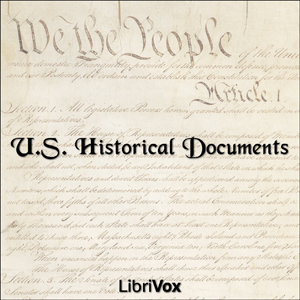
The Articles of Confederation: On November 15th, 1777 The Articles of Confederation became the first constitution of the United States, though not yet ratified by the thirteen original colonies. Ratification of the Articles took place almost three and a half years later on March 1st, 1781. The purpose of the articles was to create a confederation of sovereign states with a weak central government; thus allowing state governments to wield most of the power. It wasn’t long before the need for a stronger federal government was realized which led to the Articles being replaced by the United States Constitution. The Articles of Confederation is the common term for The Articles of Confederation and Perpetual Union.
The U.S. Constitution: The United States Constitution is the legal backbone of the United States of America and comprises the basic laws of the United States Federal Government. Delegates from twelve of the thirteen original colonies put the Constitution’s frame work together in May 1787 in Philadelphia. The Constitution defines the three branches of government and their jurisdictions; they are the Executive Branch (President/Vice President), Legislative Branch (Congress comprised of the Senate & House of Representatives), and the Judicial Branch (the Supreme Court). The need for three branches of government was to create a separation of powers so that not one person or group has full responsibilities, but that they’re spread out and each branch must refer to the other by a means of checks and balances.
The Declaration of Independence: The Declaration of Independence is a document that is the epitome of freedom and liberty. It was drafted by Thomas Jefferson in 1776 as a list of grievances against the King of England, George III. The Declaration expresses the conviction of Americans in a philosophy of self-evident truths of what individual liberty and freedom should be. The Declaration was the beginning to separation from England and the catalyst for a birth of a nation.
The Gettysburg Address: The Gettysburg Address is considered one of the greatest and most quoted speeches of a President throughout American history. President Abraham Lincoln gave his address on the battlefield at Gettysburg, Pennsylvania on November 19th, 1863. It was a few months after the battle at Gettysburg was over, the purpose of Lincoln being there was to consecrate a cemetery to the fallen Union soldiers of the Civil War. It is believed that Lincoln’s main goal of this opportunity was to fight for the United States as a united country and to express the equality of all under the law. (Summaries by Aldark)

Other Audiobook
Audiobook: Mark Twain’s Travel Letters from 1891-92
This collection of Mark Twain travel letters was compiled by Barbara Schmidt for her website,
Audiobook: Introduction to Metaphysics
An Introduction to Metaphysics (Introduction a la Metaphysique) is a 1903 essay by Henri Bergson
Audiobook: Journal of A Residence On A Georgian Plantation, 1838-1839
Fanny Kemble was a British actress who married mega-plantation owner, Pierce Butler of Georgia. During
Audiobook: Ingersoll on THOMAS PAINE, from the Works of Robert G. Ingersoll, Volume 1, Lecture 3
Col. Ingersoll begins his lectures on famous people as follows: [i]”It is hard to overstate
Audiobook: Novelas Cortas de Alarcón
Antología de nueve novelas cortas de Pedro Antonio de Alarcón.
Audiobook: Facts of Reconstruction
After the American Civil War, John R. Lynch, who had been a slave in Mississippi,
Audiobook: Observations of an Orderly
Ward Muir brings us into the heart of an English war hospital, describing scenes of
Audiobook: Essay Concerning Humane Understanding Book I
John Locke’s essays on human understanding answers the question “What gives rise to ideas in
Audiobook: Fisherman and His Soul (Version 2)
To get what we want is often the greatest curse of all. The fisherman here
Audiobook: Summa Theologica – 07 Pars Prima Secundae, Treatise on the Passions
The Summa Theologica (or the Summa Theologiae or simply the Summa, written 1265–1274) is the
Audiobook: My Mark Twain
William Dean Howells (1837-1920) became fast friends with Mark Twain from the moment in 1869
Audiobook: History of England, from the Accession of James II – (Volume 1, Chapter 02)
This is the second chapter of Thomas Babington Macaulay’s History of England from the Succession